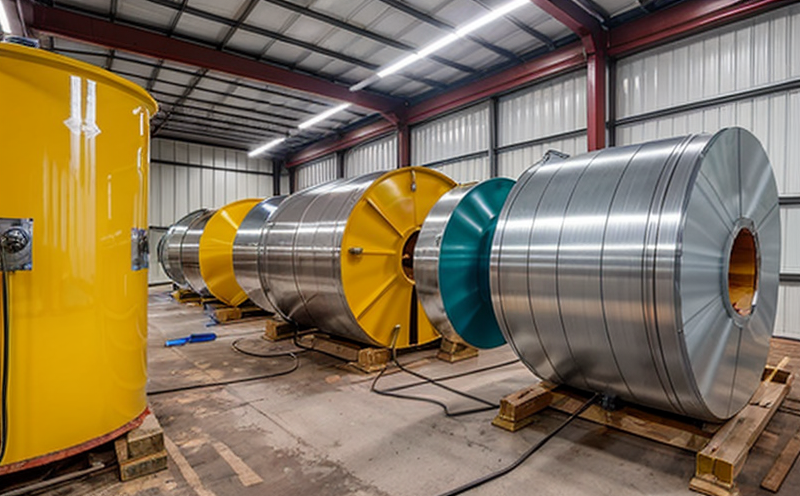ISO 20340 Offshore Atmospheric Corrosion Testing of Coatings
The ISO 20340 standard provides a rigorous framework to evaluate the resistance of coatings and paints in offshore atmospheric environments. This testing is crucial for ensuring that protective coatings used on marine equipment, such as ships, oil rigs, and other maritime structures, can withstand harsh conditions.
Offshore installations are exposed to a variety of corrosive elements including salt spray, humidity, UV radiation, and temperature fluctuations. These factors make it essential to ensure that the applied coatings have adequate protection against corrosion. The ISO 20340 test simulates these environmental stresses in a controlled laboratory setting.
The testing process involves exposing coated specimens to a precisely defined corrosive atmosphere for a specified duration. Specimens are typically exposed both vertically and horizontally to simulate real-world conditions. Following exposure, the test results assess the integrity of the coating by measuring changes in mass or thickness, adhesion strength, and color change.
For quality managers and compliance officers, this testing ensures that materials meet regulatory requirements and perform reliably under actual operating conditions. R&D engineers can use these tests to refine formulations for better protection. Procurement personnel rely on these results to select suppliers who provide high-performance coatings suitable for marine environments.
The ISO 20340 test is particularly important in the context of extended operational lifetimes and sustainability goals set by industries operating in maritime sectors. By ensuring robust protective layers, this testing minimizes maintenance downtime and extends asset life, contributing to overall economic efficiency as well as environmental responsibility.
It's worth noting that compliance with ISO 20340 is a key indicator of a company’s commitment to quality and reliability. The standard is widely recognized in the marine industry for its stringent testing protocols, making it an essential tool for companies looking to maintain high standards of performance and safety.
Benefits
Enhanced reliability of marine coatings through rigorous testing under simulated offshore conditions.
Achieve regulatory compliance with international standards recognized in the marine industry.
Extend the operational life of maritime assets by ensuring protective layers are effective against corrosion.
Minimize maintenance costs and downtime associated with premature coating failure.
Sustain environmental responsibility through efficient resource use, reducing waste from frequent re-coating.
Improve brand reputation by demonstrating a commitment to quality and reliability in marine equipment manufacturing.
Eurolab Advantages
At Eurolab, we bring extensive experience and expertise in the field of marine coatings testing. Our state-of-the-art facilities ensure that every test adheres strictly to ISO 20340 requirements. We offer a range of services from initial consultation on coating selection to final certification upon successful completion of all tests.
Our team of professionals is dedicated to providing accurate and reliable results, supported by detailed reports that can be used for regulatory submissions or internal quality assurance. With our advanced equipment and comprehensive testing capabilities, we help ensure the highest standards in marine coatings protection.
Environmental and Sustainability Contributions
The application of ISO 20340 compliant coatings not only ensures the longevity of maritime assets but also plays a crucial role in environmental sustainability. By reducing the frequency of re-coating, we minimize waste generation and the associated carbon footprint.
Moreover, by extending the operational life of marine structures, there is less need for frequent replacements, which can lead to significant reductions in resource consumption and energy use across various sectors including shipping, offshore oil and gas exploration, and renewable energy installations. This aligns with broader sustainability goals set by industries operating in maritime environments.





